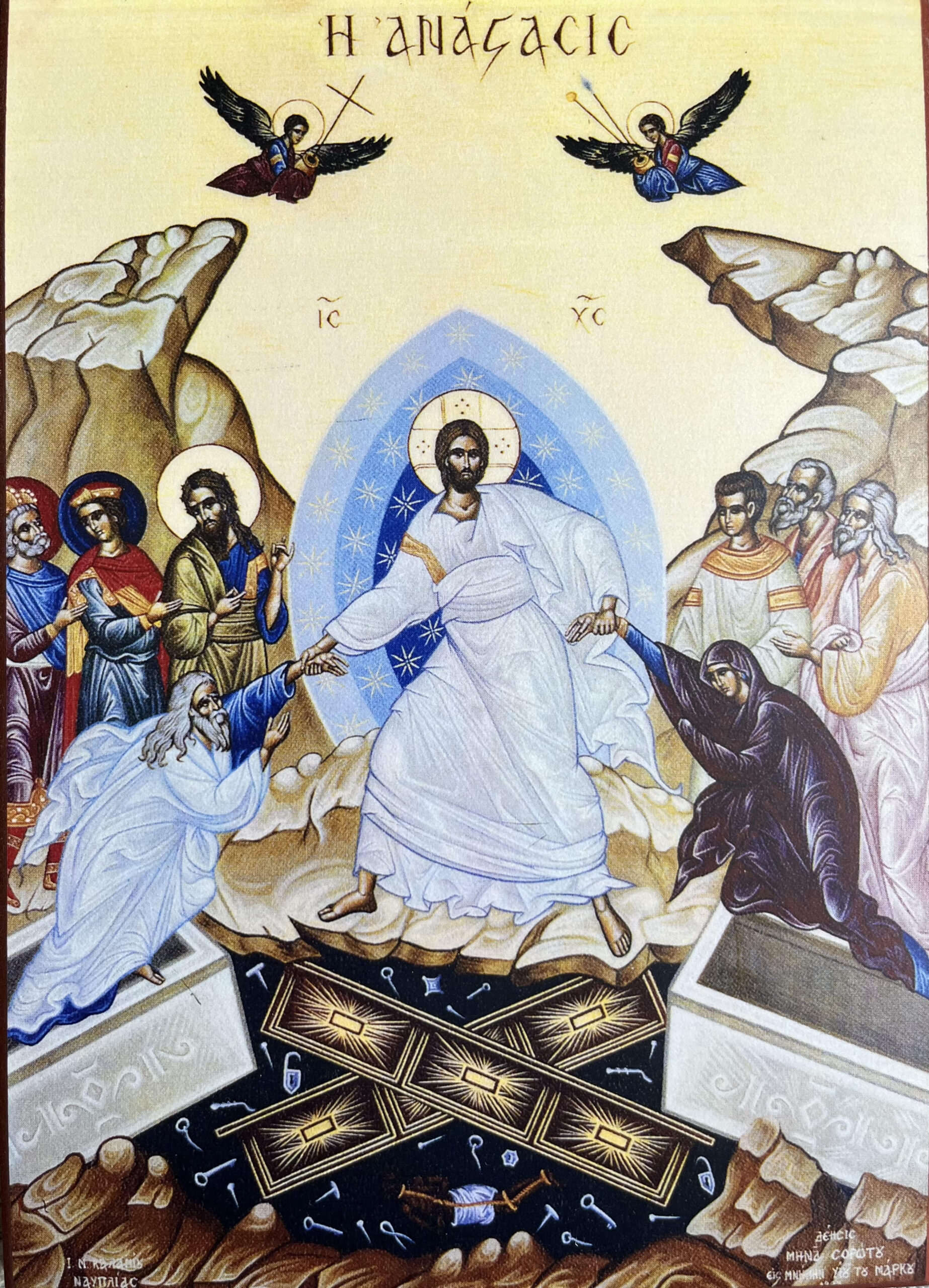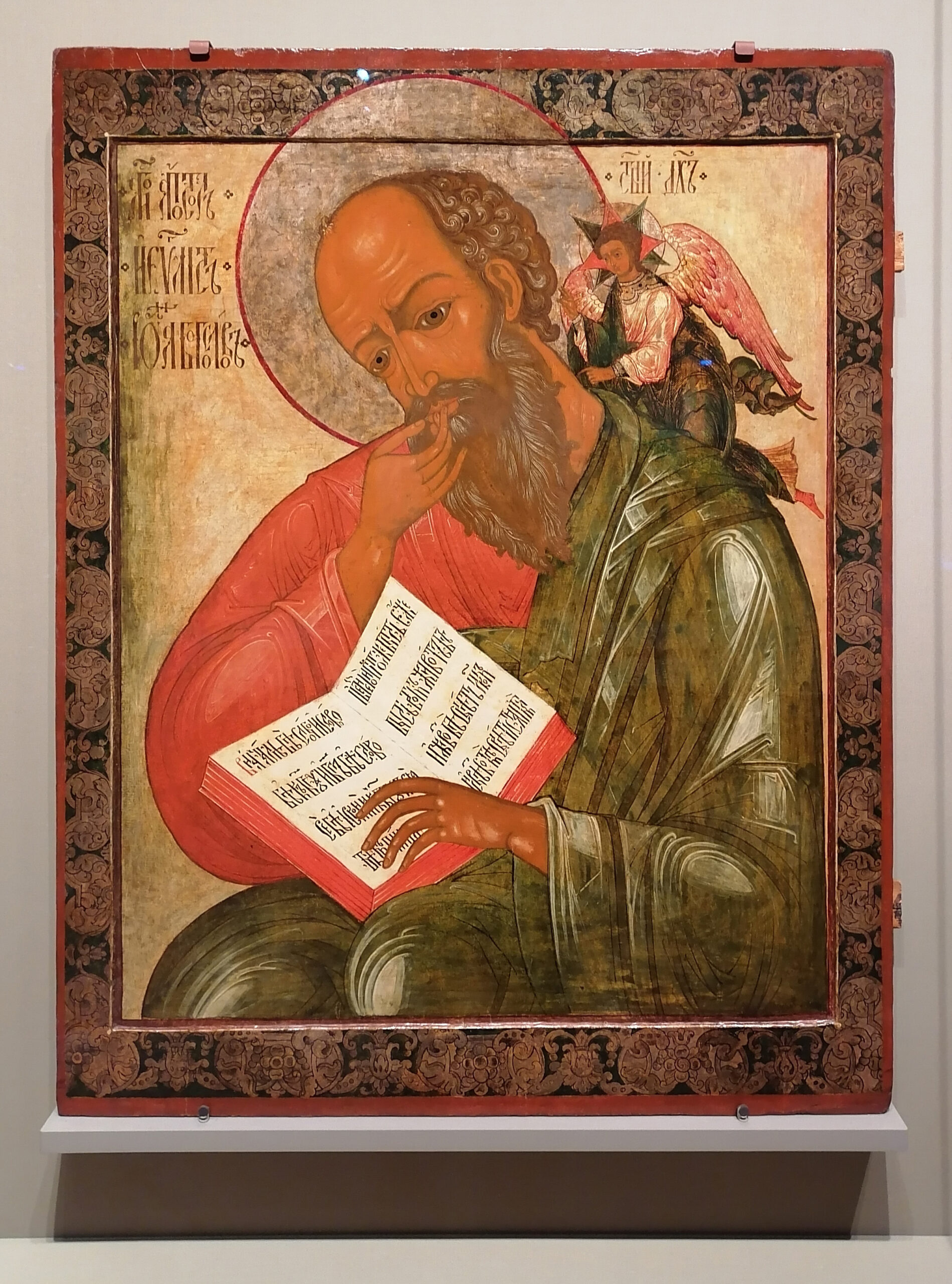Who is so great a god as our God? For You are the God, Who alone does wonders.
~Great Prokeimenon, Agape Vespers, Trans. by Fr. George Papadeas
—
What god is great like our God? Thou art the God who workest wonders.
Psalm 77:13-14
Christ is Risen!
The Agape Vespers is held in most parishes sometime between late morning and early afternoon on Pascha in most Orthodox parishes. The term “Agape Vespers” literally means “the Vespers of Love,” agape meaning love. This service celebrates God’s love for us in sending His Only begotten Son Jesus Christ to earth. It celebrates the love of Christ for humanity that motivated Him to die on the cross for our redemption. It celebrates a love for His message of salvation, which is represented in the reading of the short Gospel lesson in many languages, representing that we are to take the Gospel to every country of the world and share the Gospel in every language. And it celebrates our love for Christ, as we continue to praise and worship Him, concluding the greatest story ever sung.
After the entrance hymn, “Gladsome Light” (Fos Ilaron) that is traditionally sung at vespers, the “Prokeimenon” is not the usual one sung at Vespers on Sundays, but rather the “Great Prokeimenon,” which is reserved for a few of the major Feast days of Christ—Pascha, the Nativity, Pentecost and the Sunday of Orthodoxy. This hymn is a direct quote from Psalm 77:13-14: “Who is so great a god as our God? For You are the God, Who alone does wonders.”
There have been lots of deities throughout history. Many people have identified many gods. We recognize our God as the one true God. And probably others religions would say the same for their god. One thing that is certain is that only our God has laid down His life for His followers. Only our God considers us His friends. Only our God promises us eternal life. There is no other god like our God. There is no other god that is present like our God. And as the hymn says, there is no other god as great as our God, no other god who works wonders like our God. And no other god who defeated death and came back to life like our God. There is no other “god” who redeems from sin like our God.
The beautiful hymn at the end of this reflection speaks of how our perfect God became a perfect man, and through His suffering, our mortal race is now clothed “with the grace of incorruption.” No other god does that.
There is a beautiful story told in Acts 17 about how our God is different from other gods. Saint Paul, when preaching in Athens, was provoked in his spirit because he saw that the city was full of idols. He argued with Jews as well as Stoic philosophers about the truth of our God. And the people were critical of his teaching. Paul then stood in the midst of the Areopagus and said:
Men of Athens, I perceive that in every way you are very religious. For as I passed along, and observed the objects of your worship, I found also an altar with this inscription, ‘To an unknown god.’ (Acts 17:22-23)
It is interesting that even the people who didn’t believe in our God but rather believed in others gods and in idols, had at least some concept of our God. He was known as the “unknown god.” Continuing on in Acts, we read St. Paul’s oration,
“What therefore you worship as unknown, this I proclaim to you. The God Who made the world and everything in it, being Lord of heaven and earth, does not live in shrines made by man, nor is He served by human hands, as though He needed anything, since He Himself gives to all men life and breath and everything. And He made from one ever nation of men to live on all the face of the earth, having determined allotted periods and the boundaries of their habitation, that they should seek God, in the hope that they might feel after Him and find Him. Yet He is not far from each of us, for ‘In Him we live and move and have our being’; as even some of your poets have said, ‘For we are indeed His offspring.’ Being then God’s offspring, we ought not to think that the Deity is like gold, or silver, or stone, a representation by the art and imagination of man. The times of ignorance God overlooked, but now He commands all men everywhere to repent, because He has fixed a day on which He will judge the world in righteousness by a man Whom He has appointed, and of this He has given assurance to all men by raising Him from the dead.” Now when they heard of the resurrection of the dead, some mocked; but others said, ‘We will hear you again about this.’” (Acts 17: 22-32)
In this powerful discourse, St. Paul made a case for our God as the one true God, and while some mocked what he said, as we read in Acts 17:32, some actually agreed to hear him again about what he had said. They were curious, if not convinced.
Life is filled with choices that we make without exhaustive knowledge. There are thousands upon thousands of colleges in the world. We may tour a few of them and then we choose one to attend. This is not exhaustive knowledge, but a choice based on a belief that a certain college is right for a certain person. Marriage is the same thing. None of us dates every person in the world before we get married in order to determine we are with the right one. We may date a few people before getting married, but the choice of who to marry is also not based on exhaustive knowledge, but a choice based on a belief that a certain person is the right person to marry. Same goes for a career choice. And the same goes with God. There are lots of gods to choose from. Some are deities tied to certain cultures or ethnic groups. Some are idols, conjured up and created out of gold or silver. There are so many “gods” in the world, that no one can exhaustively try them all. Just as with marriage and college and career, faith in our God is a choice to believe that our God is the true God. That’s why the first thing we need to believe in order to be a Christian is our God is the true God.
While we discount the Old Testament, and in many instances focus solely on Jesus Christ, it is essential that we understand God in the Old Testament, because how we understand Him and the Old Covenant positively affects us as we seek to believe in our Lord Jesus Christ, and the New Covenant that He reveals fully in the New Testament.
David offered a prayer in II Samuel 22 where he confessed “This God—His way is perfect; the promise of the Lord proves true; He is a shield for all those who take refuge in Him. ‘For Who is God, but the Lord? And Who is a rock, except our God. This God is my strong refuge, and has made my way safe.” (II Samuel 22: 31-33)
The only blessed and ever-glorious God of our fathers, Who redeemed the children from the furnace, became man, suffers as a mortal; and through suffering, He clothes the mortal with the grace of incorruption. (Seventh Ode, Paschal Canon, Trans. by Fr. George Papadeas)
There is no God like our God!

